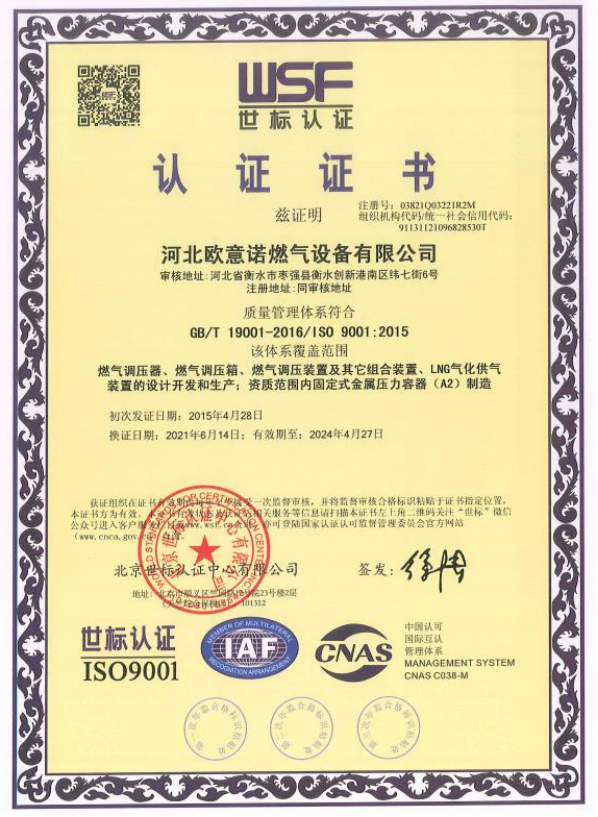
Sep . 25, 2024 17:01
Back to list
natural gas valve
Understanding Natural Gas Valves Essential Components for Safety and Efficiency
Natural gas is an essential energy source that powers homes, industries, and vehicles. With its increasing demand, ensuring safe delivery and usage is paramount. One of the critical components in the distribution and regulation of natural gas is the natural gas valve. These valves play a vital role in controlling the flow, pressure, and distribution of natural gas, making them indispensable in various applications.
What is a Natural Gas Valve?
A natural gas valve is a mechanical device that regulates the flow of natural gas in a system. They are designed to manage the distribution and pressure of gas through pipelines, appliances, and industrial systems. Valves can be found in various forms, including ball valves, gate valves, globe valves, and safety shut-off valves, each serving a specific purpose.
Types of Natural Gas Valves
1. Ball Valves These valves utilize a spherical obstruction to control gas flow. They allow for quick opening and closing, making them ideal for applications that require fast operation.
2. Gate Valves Designed for either fully open or fully closed positions, gate valves are best used in applications where minimal resistance to flow is necessary. They are often used in large pipelines.
3. Globe Valves These valves provide good throttle control, making them suitable for regulating flow and pressure. Their design allows for precise adjustments but can cause higher pressure drops compared to gate valves.
natural gas valve

4. Safety Shut-off Valves Essential for safety, these valves automatically close in case of a leak or pressure surge. They are crucial in protecting systems from overpressure and ensuring that gas is not released into the environment.
The Importance of Natural Gas Valves
Natural gas valves are central to the safety and reliability of natural gas systems. They help prevent leaks, control flow rates, and manage pressure levels, minimizing the risk of accidents and ensuring the efficient operation of downstream equipment. Moreover, proper functioning valves contribute to energy conservation by preventing excess gas from escaping into the atmosphere.
Maintenance and Testing
To ensure the longevity and effectiveness of natural gas valves, regular maintenance and testing are necessary. This includes visual inspections for leaks, checking for corrosion, and typically testing the valve operation under various pressure conditions. Valves that show signs of wear or malfunction should be repaired or replaced promptly to maintain system integrity.
Conclusion
Natural gas valves are critical components in the infrastructure of natural gas distribution and usage. Understanding their function, types, and importance helps in appreciating their role in ensuring safe and efficient gas supply. As advancements in technology continue to shape the energy sector, the evolution of natural gas valves will likely lead to improved safety features and enhanced operational efficiencies, ensuring that natural gas remains a reliable energy source for the future. Investing in quality valves and regular maintenance practices is essential for anyone involved in the natural gas industry, safeguarding both equipment and the environment.
Latest news
-
Safety Valve Spring-Loaded Design Overpressure ProtectionNewsJul.25,2025
-
Precision Voltage Regulator AC5 Accuracy Grade PerformanceNewsJul.25,2025
-
Natural Gas Pressure Regulating Skid Industrial Pipeline ApplicationsNewsJul.25,2025
-
Natural Gas Filter Stainless Steel Mesh Element DesignNewsJul.25,2025
-
Gas Pressure Regulator Valve Direct-Acting Spring-Loaded DesignNewsJul.25,2025
-
Decompression Equipment Multi-Stage Heat Exchange System DesignNewsJul.25,2025

